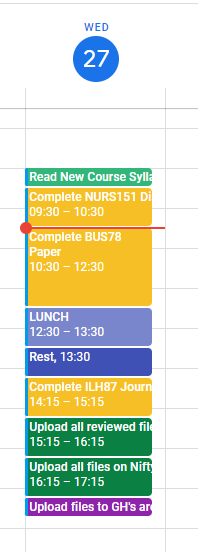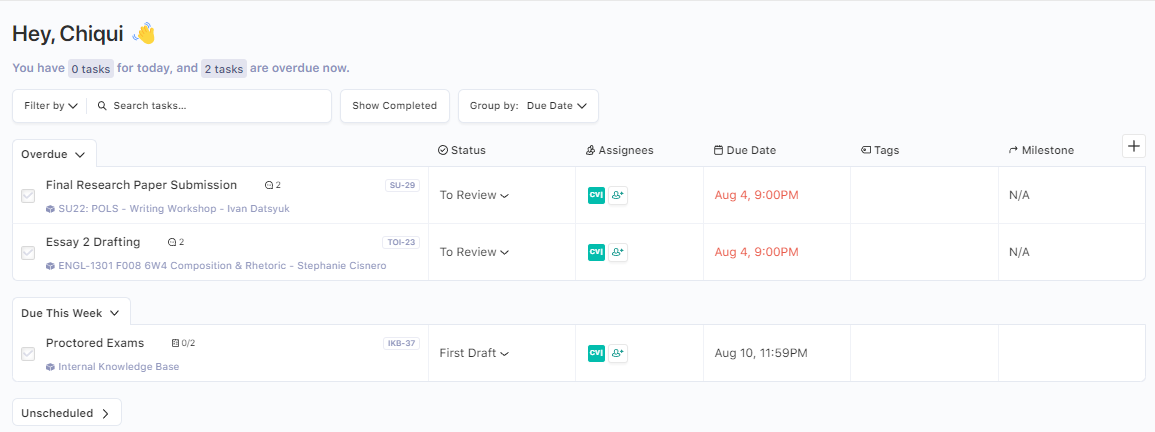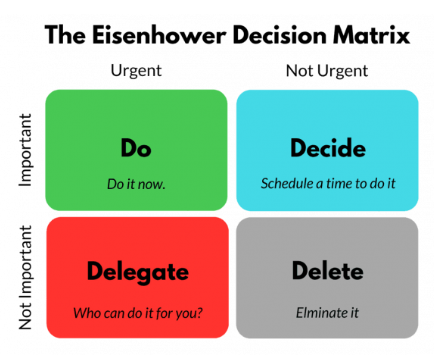How to Manage Your Time as A Study Consultant
Learn how to balance your work-life tasks!
Not having a working schedule can be a double-edged sword, even more if you have deadlines or due dates for every project. We know creating a good balance and keeping things organized to avoid feeling overwhelmed can be challenging, so we wrote this brief guide to help you out managing your time:
1. Plan ahead
Despite the flexibility of being a remote worker, it’s important to have frequent engagement with your tasks throughout the week. Provide plenty of time to space out your required responsibilities, assignments, and participation.
Consider purchasing a calendar you can use to plan your daily and weekly assignments (if you are more old school), or you can use a virtual calendar like Google's. A calendar will help you highlight every important task you need to complete, like:
- Assignments due, including drafts and final submissions
- Q&A meetings with clients
- Meetings with the team
Ideally, you'd organize your week in your calendar based on the due dates and responsibilities you have, but this is an example of how a day in your calendar would look if you organize and prioritize your tasks:

PRO TIP: You can color-code your tasks based on revisions, writing, uploading, etc. This would help you visually grasp your daily activities.
2. Pay Attention to Nifty
This can sound obvious, but NIfty, one of our everyday tools, can be super helpful in organizing your tasks. The tab "My Work" is especially helpful for checking your due dates and, thus, planning accordingly. You can find this tab in the upper left corner of your screen when you go to Nifty:

This Nifty section organizes your assigned task by Overdue, Due This Week, and Unscheduled. This way, you'll be able to see the upcoming tasks and prioritize those that need more work, time, and effort.

3. Use the Eisenhower Matrix
This technique is based on the prioritization of activities according to their level of importance. The purpose of this technique is for you to successfully decide which activities you have to carry out in order to organize yourself in a more effective way.
The Eisenhower matrix divides activities into four quadrants.
- Do Now: These are the most indispensable tasks that you must do as soon as possible.
- Decide/Schedule: In this quadrant, place the tasks that are important to you but are least urgent. At the same time, you can schedule these tasks to do later.
- Delegate: These activities are not necessary to achieve your goals, but they need immediate attention. Here you can delegate your least urgent responsibilities (i.e. grocery shopping, car washing, laundry) to people who can help you like family, friends, or done-for-you services (Amazon prime or Gradehacker ;).
- Eliminate: Here are all the activities that you shouldn’t do (i.e. endless scrolling through social)

4. Don’t multitask
Avoid multitasking—which can actually decrease your productivity. Focus on one assignment at a time and zero in on the specific task at hand, whether that’s revising content for an exam, reading a textbook, emailing a client, or writing papers. Arrange your tasks in order of importance, and pay attention to the three or four crucial tasks that require the most effort.
If you need help staying focused, then consider creating lists using a project management tool, such as Trello or Smartsheet, to help organize tasks. If you prefer a traditional to-do list, then look at digital notebooks like Todoist, ClickUp, or Notion.
Lastly, concentrate on what needs to get done in the present and avoid anything too far-off. If it’s a small assignment that you don’t need to address for several weeks, put it on your calendar to focus on when the deadline is closer.
5. Create a balance
In addition to rewarding yourself, finding a balance between work and your other obligations is important.
To help create an effective balance and avoid burning out, be sure to prioritize your time in a way that allows you to focus on work and your personal life when you need to. Creating a predictable schedule can help you get into a routine that works for your lifestyle and allows you to dedicate your full attention to each aspect of your life at a given time.
Thus, if, for example, you want to have free weekends, our recommendation is to follow the advice from point one of this article. Organize your calendar in a way that will help you complete your tasks within the week. It sounds difficult, but practice makes perfect! Give it a try, and see the changes yourself.